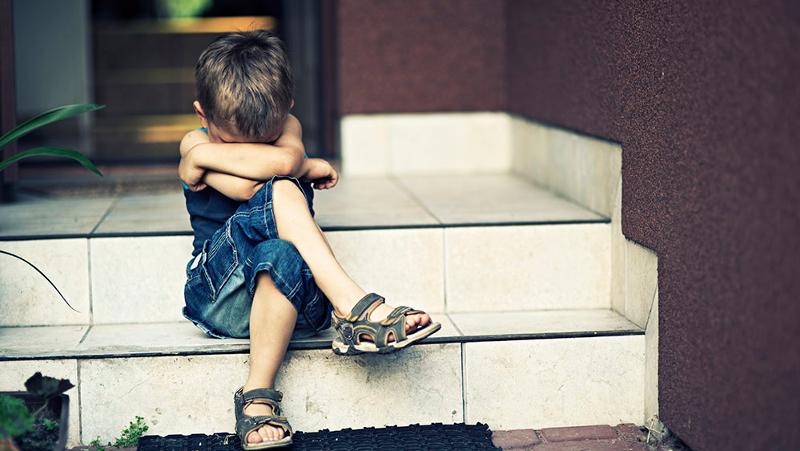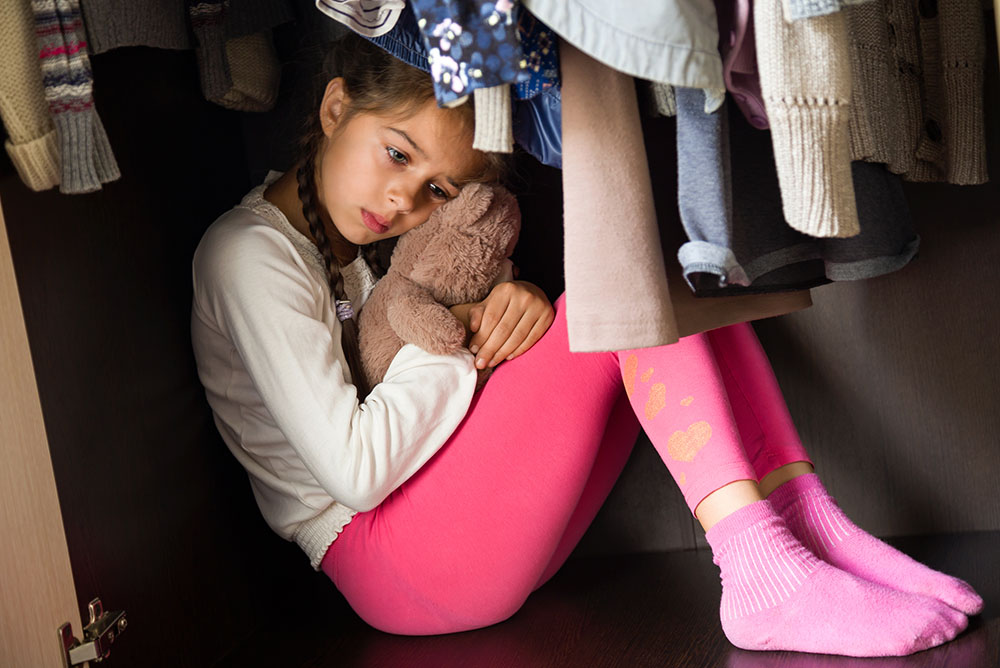
A $2.3 million study of the prevalence and effects of child maltreatment in Australia is underway, led by QUT Professor Ben Mathews with a team of international researchers.
- Comprehensive study of prevalence, health and economic burden of child maltreatment
- Study covers the five forms of maltreatment: physical abuse, sexual abuse, emotional abuse, neglect and exposure to domestic violence.
- 10,000 Australians to be surveyed
- Study will look at mental and physical health outcomes
The five-year study, funded by the National Health and Medical Research Council, is the first ever to examine the health outcomes and burden of disease caused by child maltreatment.
Professor Mathews, who heads QUT's Childhood Adversity Research Program in the QUT School of Law, said the study had three main dimensions, making it the most comprehensive national study of its kind.
"It will provide the first reliable estimate of the prevalence and co-occurrence of all five forms of child maltreatment: sexual abuse, physical abuse, emotional abuse, neglect and exposure to domestic violence, and other major childhood adversities," Professor Mathews said.

"The study will also identify the location, frequency, severity and timing of these experiences and the child's relationship to the person who inflicted them.
"The second dimension of the study is concerned with the major impacts on health outcomes associated with maltreatment across the lifespan. These will include:
- mental health outcomes such as depression, anxiety, self-harm and suicidality;
- substance use, including tobacco, alcohol and other drugs; and
- chronic physical health conditions, including obesity, cardiovascular disease and diabetes.
"Thirdly, the study will generate an estimate of the national burden of disease caused by child maltreatment."
Professor Mathews said the research team would use internationally recognised, validated instruments and clear rigorous definitions of each type of maltreatment that apply across cultural settings.
"Overseas studies have found that people are willing to participate in these studies, provide reliable accounts of their experiences, and that incidents of distress are rare," he said.
"The study will be based on a nationwide survey of 10,000 Australians aged 16 and over from a random sample of potential participants, generated by the team's survey partner, the Social Research Centre.
"We will invite people to participate through mobile and landline telephone interviews, and participation will be voluntary, anonymous and confidential. Professional support will be available.
"Researchers and interviewers will adopt international best practices and adhere to strict ethical standards to protect participants."
Professor Mathews said the project had a strong focus on translating the study's findings to policy and practice.
"The research team will engage with external stakeholders from government, non-government and clinical sectors, including the National Office for Child Safety, to maximise its potential to produce relevant outcomes for government policy makers, non-government organisations and clinicians," he said.
"The scientific findings will provide governments and policymakers with information on national public policy strategies about where, when and how to invest resources to reduce child maltreatment and respond effectively to it at an early stage."

Professor Mathews said the new study "brings together a multidisciplinary team of leading researchers to implement a ground-breaking study for the benefit of the nation and the broader international field of child welfare and public health".
Co-researcher Associate Professor James Scott from The University of Queensland said "Reducing the prevalence of child maltreatment offers the greatest opportunity to prevent mental illness, suicide and other serious health problems in the Australian population."
Professor Daryl Higgins, Director of ACU's Institute of Child Protection Studies, said: "While the National Framework for Protecting Australia's Children 2009-2020 makes a clear commitment to the need for actions to prevent all forms of child maltreatment, including child sexual abuse, there is currently no systematic way of knowing whether our prevention efforts are working. A national, population-based study will provide such a benchmark."
Professor David Finkelhor, Director of the University of New Hampshire's Crimes Against Children Research Center, said Australia had set the standard for international response to child maltreatment with its Royal Commission Into Institutional Responses to Child Sexual Abuse.
"With this new study, Australia will again take the lead in the science about maltreatment, and hopefully pave the way for everyone to do the best possible job of prevention," he said.
Research team members are:
Professor Ben Mathews (QUT), Professor Rosana Pacella (University of Chichester and QUT), Professor Michael Dunne (QUT), Associate Professor James Scott (The University of Queensland), Professor David Finkelhor (University of New Hampshire), Dr Franziska Meinck (University of Oxford), Professor Daryl Higgins (Australian Catholic University), Dr Holly Erskine (The University of Queensland), and Dr Hannah Thomas (The University of Queensland).
For further information, contact Professor Ben Mathews [email protected].
If this article has raised any issues for you, please phone Lifeline on 131 114 or the sexual assault support line 1800 RESPECT on 1800 737 732.






